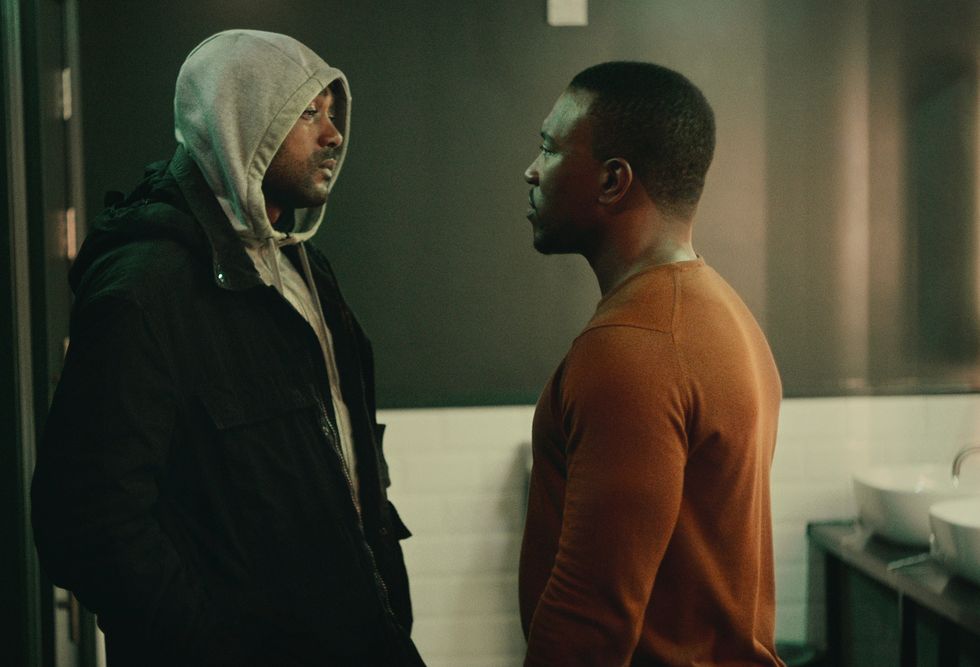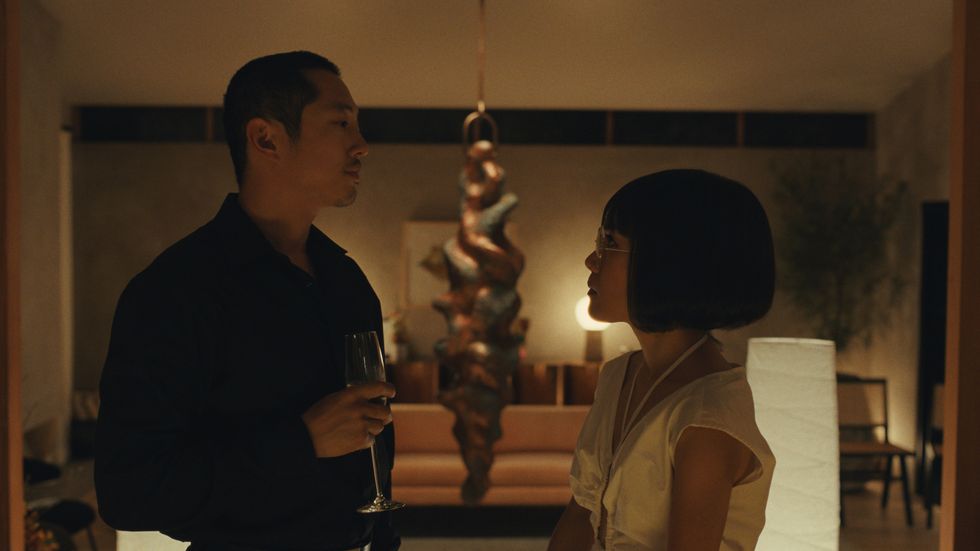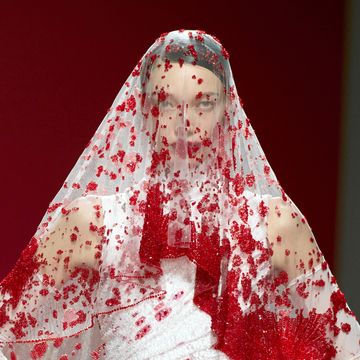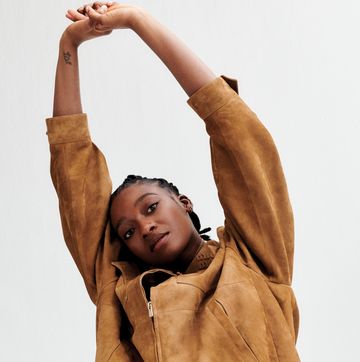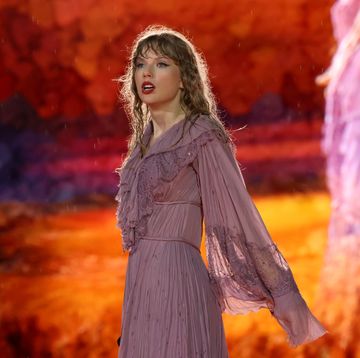Spoiler alert: This feature contains Top Boy spoilers.
Last month, as the clock ticked 11.55pm (I should definitely have been asleep) I was awake with my eyes wide open and heart pounding. Yes, work was busy, and I'd just moved house, fully aware of the wall I needed to paint downstairs, but I wasn't thinking about the next day's meetings nor DIY to-do list. Occupying my mind was what Sully was going to do to Jac (and Kieran, poor Kieran) after she stole his batch of drugs.
Yes, I'm not talking about real life, but about Top Boy. The final season was brilliant TV, so tense to the point that it's was hard to watch at times. Even when the intensity of the episodes reached fever pitch, I continued watching, eyes glued to the screen, unsure how many deep breaths I was forced to take.
Of course drama, crime-angled TV and thrillers are not new. But what does appear to be on the rise is the intensity of the shows, which spans all genres. Top Boy is just one of these all-consuming TV shows that appear to have the adverse effect on the body of what sitting down on the sofa opposite the TV, with a cup of tea in hand, is supposed to have: relaxation.
Arguably, some of the biggest shows from the past few years have been ones that send adrenaline shooting through the bloodstream of its audiences. Take the newly-released Boiling Point on the BBC, where in the first episode I felt I was on the gruelling shift with the kitchen stuff. Or another chef-focussed series before that, The Bear, and particularly the sixth episode of season two where a family dinner episode starring Jamie Lee Curtis, Sarah Paulson, John Mulaney, Jon Bernthal and Bob Odenkirk alongside its regular cast was described as ‘unbearably tense’ by The Guardian. Or BEEF, where Ali Wong and Steven Yeun embark on a cat and mouse revenge spree for 10 uneasy – yet incredible - episodes. Hijack, Happy Valley, Industry, The Handmaid’s Tale are also on the list of recent shows that have left us on the edge of our seats.
The number of adrenaline-filled TV shows has seemingly risen in tandem with the increase of stresses in our lives, thanks to more intense work schedules and financial worries. A recent study by the TUC found that 55% of those they surveyed felt their work is getting 'more intense over time', with 61% workers reporting feeling 'exhausted' at the end of most working days, with women feeling both effects more than men. In 2022, employee service Glassdoor found that burnout among UK workers had increased by 48% in a year. In August, mental health charity Mind reported how nearly half (48%) of people in England and Wales said their mental health had been negatively impacted by the cost of living crisis, while almost a third of people (29%) said that rising mortgage interest rates had affected their mental health.
So if people are more stressed, why are we turning to stress-inducing TV when our lives are stressful as it is?
We need stressful TV to distract us from our stressful lives
It's previously been suggested that re-watching familiar shows (hello, Friends) can help alleviate stress, and that some opt for wholesome shows to numb their mind from their day's stress and focus on something at the opposite ends of the spectrum, for instance The Great British Bake Off. However, it's believed others might select a gripping drama as their form of escapism to fully absorb their attention so they don't have to think about things really bothering them.
'Really stressful situations have a way of intruding on our thoughts, like when you can’t seem to stop replaying a fight you had with a loved one in your head. In times like these, entertainment, which is really demanding, can be more useful to us: we need something that commands our full attention, like a complex drama or difficult video game,' explains Dr Sara Grady, an assistant professor in communications at Ohio State University. 'This high-demand, highly-challenging content requires more of our attention and effort – which might seem counter intuitive when we are worn out – but, something more demanding allows us to really get sucked into the experience (researchers call this "absorption potential"), and therefore it serves as a better distraction to disrupt the negative mood.'
This view is echoed by Dr Allison Eden, an associate professor in the Communication department at Michigan State University, who points to these shows also having a higher 'intervention potential'.
'That is, the ability of exciting or arousing content to intervene in existing mood states,' she explains. 'Highly arousing content (for example, filled with car chases, sexy people, unexpected twists, and maybe some horror aspects) tend to have a high intervention potential – in other words, it can kick us out of our stressed, bored, or anxious state.'
We can learn from stressful TV shows
Another suggestion from Dr Grady is that audiences might watch TV shows depicting stressful scenarios to arm themselves with knowledge about how to deal with a similar (even if not, quite as intense) in the future.
'Stories about dangerous or stressful situations are a tool for us to explore these kinds of events from the safety and comfort of home,' she tells us. 'Think of it almost like a dress rehearsal: we’re practicing and exploring these intense - but rare - situations to gather information and try it out without putting ourselves in real danger.'
Does it reassure us by seeing stressful situations that could mirror our own lives?
I posed the question about why we watch such tense TV to some friends after we dissected the final episode of The Bear season two. Some said that the experience offers a dose of perspective. For example, a chef locking themselves in a fridge on his new restaurant's opening night might make them feel better about a passive aggressive email they received that day at work.
Dr Grady proposes a slightly darker scenario too, that perhaps seeing our own stress reflected - even if not as extreme - is reassuring, as it reflects our own lived experiences. For example, while we don't live in Gilead, the totalitarian theonomic state in The Handmaid's Tale remake, starring Elizabeth Moss, the show came out in 2017 against a backdrop of increased global concern surrounding women's reproductive rights.
'This kind of affinity between media users and the content they gravitate towards can come in many shapes. So it is often worth asking ourselves, is The Bear echoing our own experience of family trauma or complex workplace dynamics? Does Euphoria depict addiction in ways we see playing out with our own loved ones? Sometimes the stresses we seek out in media reflect the struggles we are facing ourselves, and going through them with other people (even pretend ones) can help us feel less alone,' she explains.
Is stressful TV really new?
Dr Eden questions if there has been a rise in stressful TV (and brings up the likes of The Sopranos and Breaking Bad), and instead reminds us that we have reached ‘peak TV’ consumption. We have never had more content to consume thanks to the plethora of streaming sites replacing the few channels we had before. In 2022, the Hollywood Reporter told how 599 new English-language scripted shows had been made in that year alone.
If it is a new phenomenon, however, it might be linked to generational trends, as Dr Eden's recent research found that age was a big influence on the type of media people were opting to watch. 'A lot of younger folks are drawn to negative, exciting content while older individuals – in contrast to the younger samples - preferred more positive, less-exciting media. We tend to get better over time at selecting media that will meet our emotional needs, so maybe some of these preferences are just us learning what works and what doesn’t.'
Whether it works or doesn't work, it can't be denied that we're all absolutely hooked to high-intensity TV. Now, someone pass us a stress ball...

Olivia Blair is Entertainment Editor (Luxury) at Hearst UK, working across ELLE, Esquire and Harper's Bazaar. Olivia covers all things entertainment and has interviewed the likes of Margot Robbie, Emma Stone, Michaela Coel and Ryan Gosling over the years.

